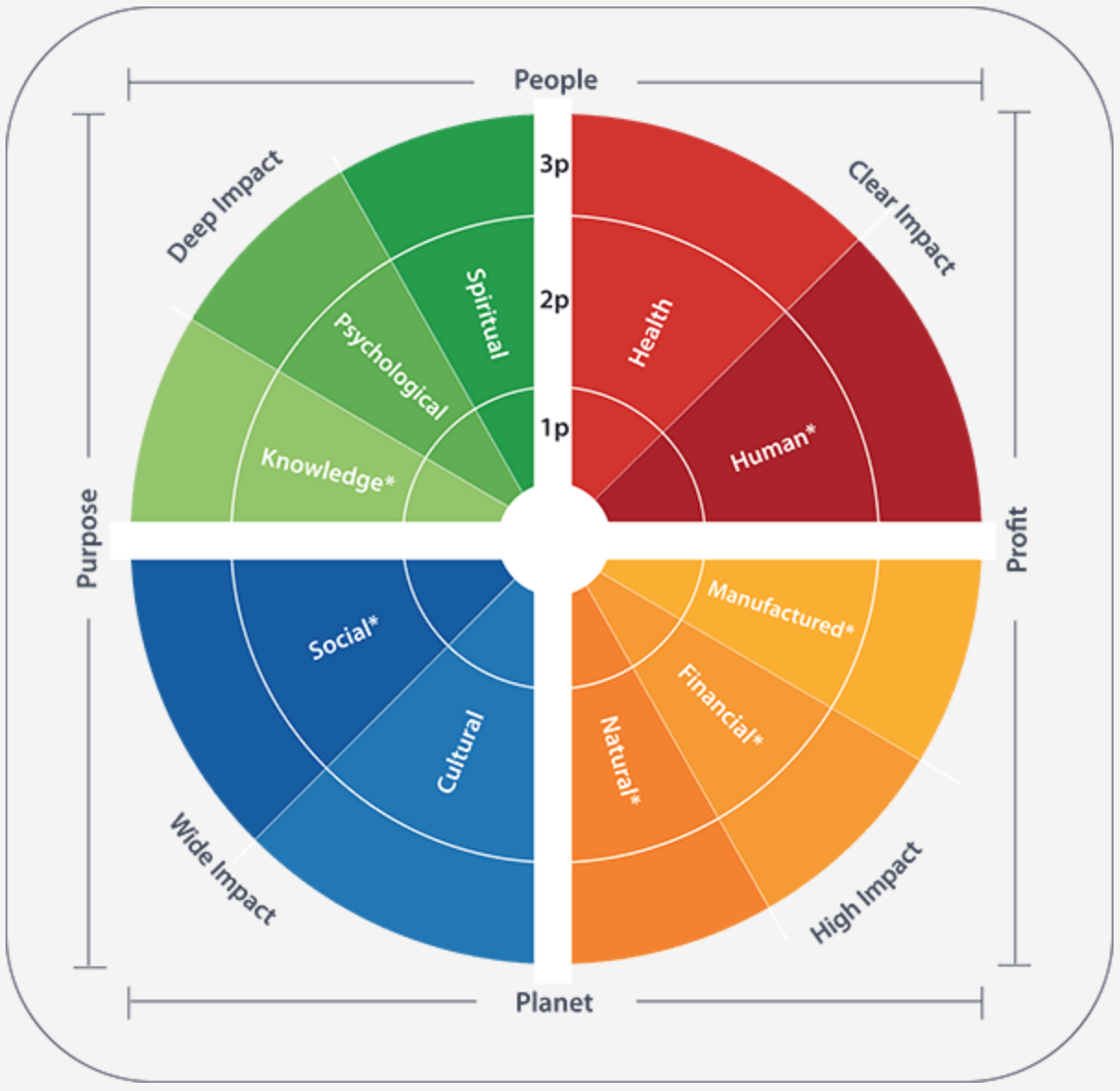Anyone and everyone connected with sustainability dives straight into a dizzying array of frameworks.
If you spend even a short time in this space (or for some like me, a career!) you’ll be swimming through terms, measures and concepts such as:
- Corporate social reporting; Global reporting initiative; Ecological footprint
- Triple bottom line: People, Planet, Profit
- Zero impact, net zero; Environmental restoration, re-wilding
- Dematerialisation; Industrial ecology
- Carbon neutral, carbon positive; Decoupling
So how do we cut through? How can we turn all the deep care, passion, effort, insight, work and brilliance, associated with all these concepts, into transformational global fast change?
Will it help to go big – meta – and what is the minimum set of concepts that will encapsulate sustainability? As simple as possible but not simplistic.
To do this the MetaCapital Framework measures 4 types of impact with 10 types of capital to produce 4 bottom lines.
4 types of impact with 10 types of capital to produce 4 bottom lines.
That’s a lot to grab in a short blog post. However, MetaCapital is resonating strongly within organisations not only around sustainability. In part, what has been occurring with so many diversified views of sustainability is that people are mixing impact measures, the stock of something as well as flows (increases and decreases).
We clearly distinguish such parameters for a company’s finances – e.g. business plan, assets and liabilities, cashflow. In today’s world, we need to do this across multiple bottom lines, environmental, human and psychological capital and across the impact on individuals as well as groups – just to mention a few parameters. The developing MetaCapital framework has the potential to bring clarity to help us in this complexity.
For an introduction, watch Sean Esbjörn-Hargens explaining the framework’s background and its potential to the first MetaCapital masterclass.

For a deeper dive into MetaCapital and the slides referred to in the video see metacapital.net.
For those new to meta-frameworks like this and/or integral theory quadrants see Beyond the boxes for some first steps.

Recent Comments